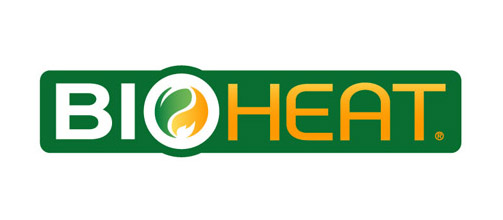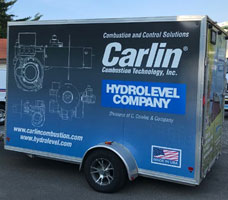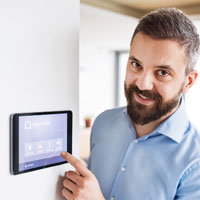Dear Friends,

Because of Westmore Fuel’s leadership in advancing Bioheat® fuel as a cleaner-burning replacement for traditional heating oil, I was asked to be the leadoff speaker during a panel discussion entitled “Bioheat Industry Visionaries.”
This virtual event was sponsored by One Industry — One Choice, a collaboration between energy associations in four Northeastern states, including Connecticut and New York. Its mission includes educating both heating oil companies and customers about the importance of embracing clean, renewable Bioheat® fuel.
The heating oil industry is at a critical point as policy makers continue to push for the extinction of fossil fuels in favor of widespread electrification.
But the heating oil industry has a plan: the industry has pledged to reach net-zero carbon emissions by 2050 through accelerated use of higher blends of Bioheat® fuel.
In my address to the panel, I explained how we introduced a B2 Bioheat® fuel blend during the winter of 2008. We increased that to B20 two years later and shortly afterward, invested in our own on-site blending facilities to ensure quality control. Today, we are moving toward a B30 blend.
The most refined grade of heating oil available, Bioheat® fuel allows our customers to enjoy a reduction of system maintenance issues because biofuel blended with ultra-low-sulfur heating oil eliminates the source of most equipment issues.
You can read more by going to the Bioheat® fuel section of our website. In the meantime, if you need our help with a heating issue, remember we are always on call for you.
Warmly,
Richard C. Bologna
Until our electricity supply is less environmentally destructive and not prone to numerous blackouts, it is simply not the best choice for heating when advancements in heating oil are already proving to be incredibly effective and affordable.

*Source: New England Fuel Institute, “Leading the Way Toward a Zero-Carbon Future,” May 2019

To keep their technical skills on the cutting edge for the industry, our technicians receive ongoing education and training for all oil heating makes and models. This enables us to solve your problems faster and get it right the first time.
Our team provides expert solutions for even the most difficult home comfort challenges with your satisfaction being our number one priority. Over the summer, we brought in Carlin Combustion Technology to do a training program for all our techs, and we will continue to increase our team members’ knowledge and expertise as time goes on.

Cold weather can bring many challenges, from dry skin to uneven heat or even no heat at all. Here are some solutions.
If your heat stops working and you’ve made sure it is related to your house only — not a wide-scale power outage — your next step should be to check to see if the power switches to your boiler or furnace have been accidentally turned off.
If your circuit breakers or fuses are all on, check the power switch located on the side of the heating system or on a wall nearby. Farther away, often at the top of the basement stairs, there is an emergency switch with a red cover plate that is labeled. It can be easy to switch it off by mistake, thinking it is the light switch for the basement. If your circuit breaker continues to “trip,” be sure to call for service, as this could be a sign of a serious problem.

Make sure your thermostat is set above room temperature and to HEAT. Check to see if you need new batteries too. Remember, it is the thermostat’s job to send a signal to your boiler or furnace to call for heat. But this signal may be interrupted if the wiring of the thermostat has begun to deteriorate or if dust is building up inside.
If you still have no heat and you know you are not out of fuel, press the red reset button on the oil burner. The reset button is a safety control that shuts the burner down if a problem is detected. Do not push it more than once. Repeatedly pushing this button can flood your system with oil, resulting in a costly repair. If pushing the reset button doesn’t work, or only works temporarily, please call for service.
Be sure to change or clean the air filter on a regular basis if you have a warm-air oil furnace. A filter clogged with dust compromises efficiency and can cause your furnace to shut down.
For steam oil boilers, check the water gauge periodically. Low water levels are a leading cause of boiler shutdowns. Steam boilers should also be “flushed” when the water in the gauge looks rusty. Talk with us if you’re not familiar with this procedure.
For hot water oil boilers, make sure the water level of the boiler is at half-full. The boiler’s automatic filling system, controlled by the pressure-reducing valve, should maintain the proper water level at 12 to 15 psi (pound-force per square inch) of pressure. If there isn’t a pressure-reducing valve, manually feed the boiler by opening up the water feed valve until the boiler pressure reaches 12 psi.
There is no way of knowing if COVID-19 will impact our deliveries in the coming months. So it is especially critical that you are on automatic delivery so you don’t have to call every time you need more fuel.
If you are already on automatic delivery and your usage patterns have changed, (you are working from home and keep the heat on longer; or you’ve moved to a second home and aren’t using as much, etc.), please let us know.

If you’d like help with issues like a noisy system or uneven heat, give us a call!
You can always expect a fast and courteous response from us whenever you need help. We think that’s one of the most important differences between utility companies and local heating oil companies like us.
Utilities think more about numbers than about people, in large part because they are monopolies that are more focused on financial and operational aspects than on customer service. As a local company, we are here for you!

Q: I know you are behind in doing tune-ups because of the pandemic. Is this a problem?
A: No. For months, we were unable to get into people’s homes and had no way to catch up. The good news is the ultra-low-sulfur B20 Bioheat® fuel we deliver creates far fewer emissions and much less soot, reducing the likelihood of clogging in your unit. So you have a lot less to worry about than before.
Q: Are you going to get to everyone’s tune-ups?
A: Yes, we will, during the winter and spring, barring any further lockdowns. Please be patient as these are very challenging times.
Q: Why is it so difficult to get all tune-ups done?
A: When the weather is cold, we have to leave room in the schedule for no-heat calls because our customers don’t like it when we have to cancel appointments. If we have a warm stretch, we’re able to reach out to schedule appointments during that time, but in the winter, we can’t book as many ahead of time as we might in spring, summer and fall. We can’t promise a specific day because we may get a lot of emergencies and we don’t want to cancel.

Our ultra-low-sulfur B20 Bioheat® fuel has 99% less sulfur in it than standard heating oil. The transition to this cleaner fuel has resulted in a reduction in emissions of over 70%.
In addition to reduced emissions, this fuel is kinder to your equipment. There’s less sediment, fewer clogs and far fewer breakdowns. Your system burns fuel more efficiently, so you’ll get better value — and if you use super-efficient heating equipment, you’ll save even more!

We’re doing everything we can to keep you and our team safe (social distancing, face masks, sanitizing the area where we work in your home, and more). Please do your part by following all CDC-recommended safety measures as well.
Read our COVID-19 service updates.

As a Westmore customer, you’re entitled to a rebate that you cannot get from most companies in New York. Because we use a B20 blend, our New York customers can receive a 20¢-per-gallon clean-fuel tax credit. This saves our typical NY customer about $200 each year.
Westmore is the only fuel company in the area that delivers B20 Bioheat® fuel, and only the B20 blend that we sell allows you to enjoy these big savings.
Check the Bioheat® fuel section of our website and look for the NY Clean Fuel tax credit form and instructions — coming soon!